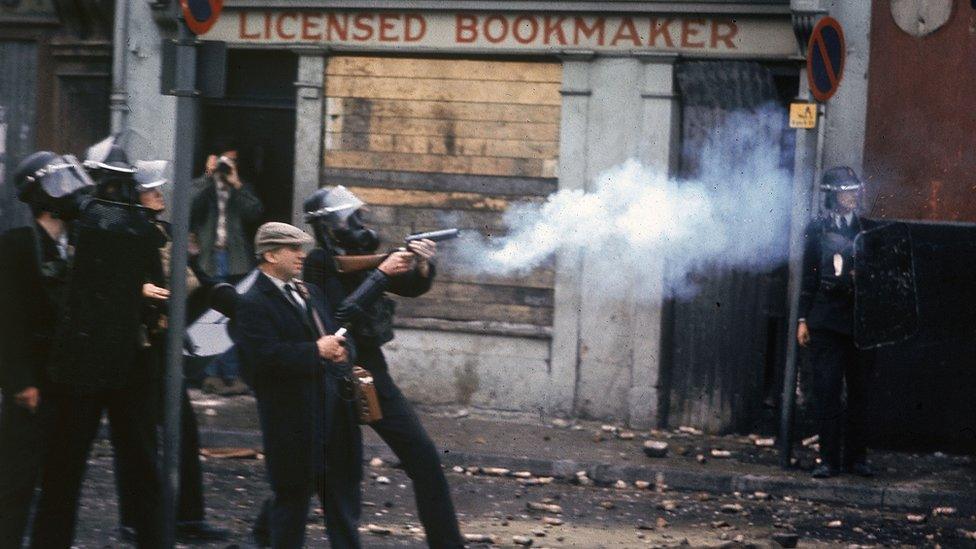Radio Free Derry remembered 50 years on
- Published
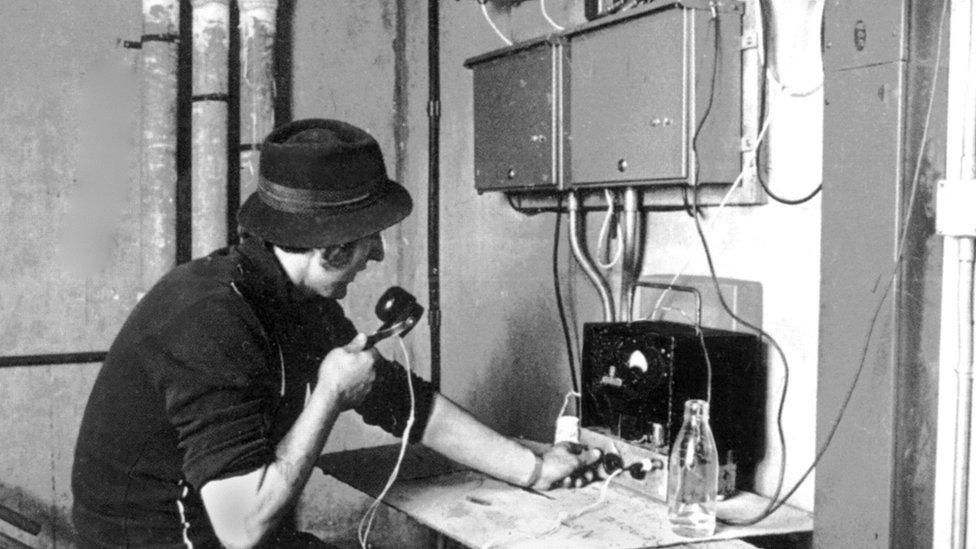
Eamon Melaugh operated Radio Free Derry from the Rossville Street flats during the Battle of the Bogside
"This is the first free radio Derry has ever known."
These were the first words broadcast via a clandestine transmitter smuggled across the border into Londonderry in 1969 from the Irish Republic.
This was a time of protest, with campaigners clamouring for change in Northern Ireland.
Civil rights campaigner Eamonn McCann set up the transmitter that would broadcast Radio Free Derry.
"We weren't expecting the transmitter to arrive and we knew very little about radio transmitters," Mr McCann said.
"We didn't have a plan. Like most things in those days, it was done on the spot.
"Our first aerial was a strip of tinfoil stuck to the roof and we played records off an old gramophone.
"The technology was very simple, I was surprised it worked so well."
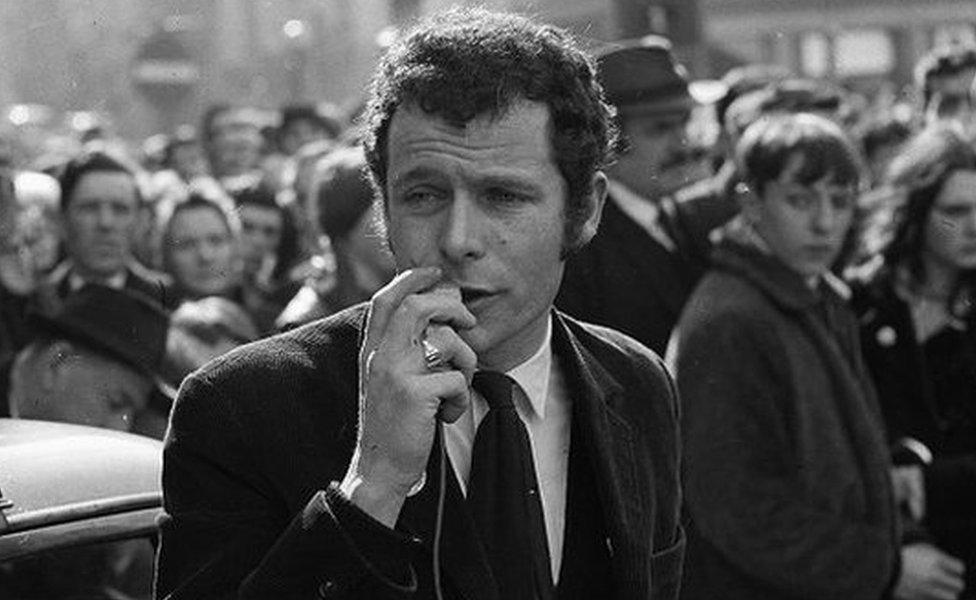
Eamonn McCann, speaking at an event in the Bogside area of Derry in April 1969
Then aged 25, Mr McCann had the reputation of a fiery speaker at the forefront of the civil rights movement in Northern Ireland.
Now he was broadcasting to Derry's Bogside and beyond.
'Daring, fun, unexpected'
The makeshift station's schedule was comprised of music, interviews, updates and political commentary.
It predated the Battle of the Bogside, three days of serious rioting in Derry widely regarded as being among the key moments in the infancy of Northern Ireland's Troubles.
"Radio Free Derry is one of the things I remember most fondly about that time," Mr McCann said.
"In the midst of the mayhem, we were having fun sitting in a flat communicating with the whole of the Bogside trying to be DJs.
"Radio Free Derry was daring, fun and unexpected. It was a light-hearted operation."
But that would soon change.
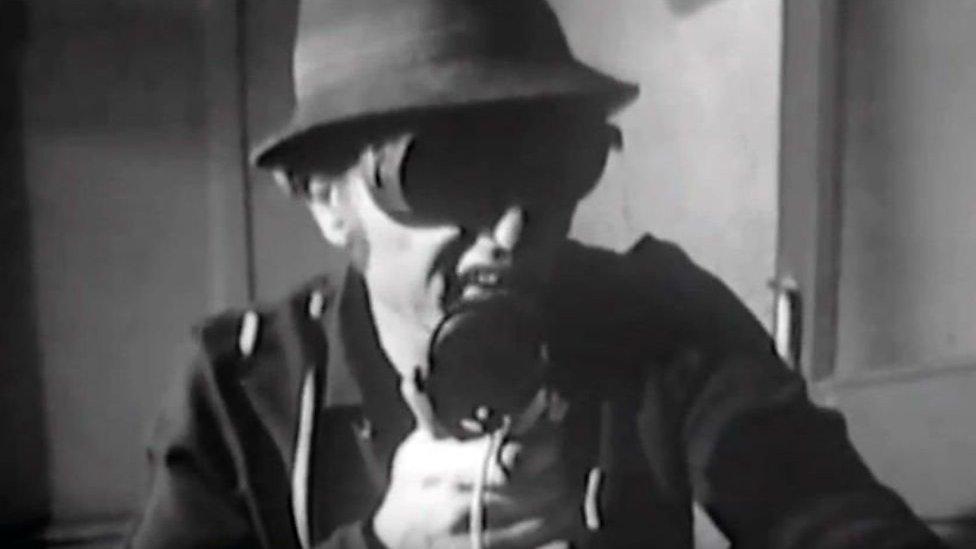
The pirate station was run by Eamonn McCann, Eamon Melaugh, Tommy McDermott and Tommy McCourt in 1969
The Battle of the Bogside in August 1969 came following rising tensions between the nationalist residents of the Bogside in Derry and the RUC (Royal Ulster Constabulary) over an Apprentice Boys parade.
It brought British troops on to the streets of Northern Ireland for the first time.
Mr McCann said: "Within a couple of weeks the seriousness of the situation began to impinge on everybody, it wasn't possible to think of anything in a light-hearted way again."
When violence started to break out on 12 August, 1969 at William Street in Derry, fellow political campaigner Eamon Melaugh rushed home to get the Radio Free Derry transmitter.
"I brought the transmitter to the Rossville Street flats. I threw the cable out the window and started broadcasting," Mr Melaugh explained.

You may also be interested in:

During the Battle of the Bogside, Mr Melaugh was the voice behind the microphone.
"It was a source of information for people. No-one had phones in those days so they found out what was happening through Radio Free Derry," he said.
"I talked for hours on it, non-stop for almost three days. My voice was hoarse by the end of it.
'Primitive equipment'
Mr Melaugh said the radio equipment was uncovered by soldiers during house searches in the Bogside in the years after 1969.
"I had stashed the transmitter in a house under a bed. The family told me a soldier found it and shouted, 'I've got Radio Free Derry'.
"They had to leave each house after two and a half minutes so they left it behind. That could have been the end of Radio Free Derry.
"The equipment was so primitive that if you had as much as coughed on it, it would have fallen apart."
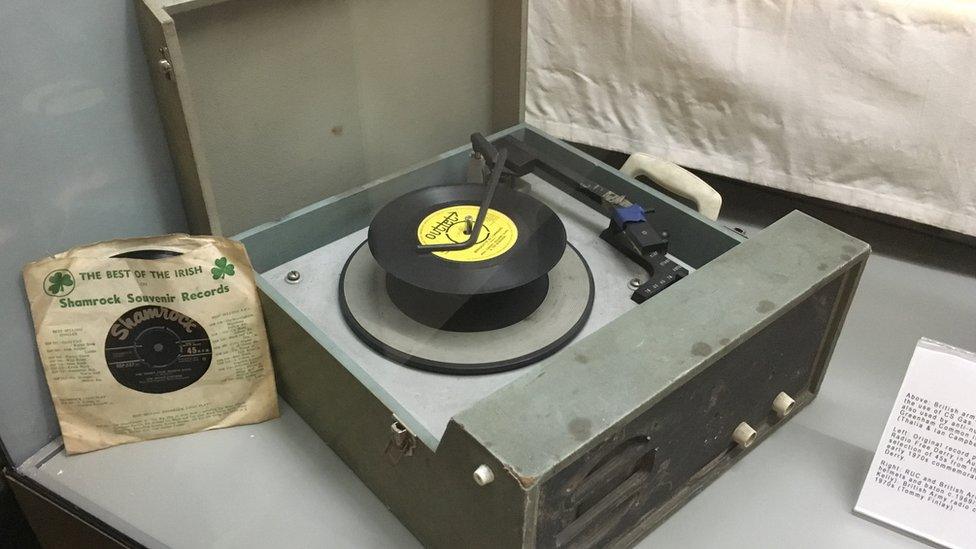
The gramophone and records are now on permanent display in the Museum of Free Derry
Eamonn McCann said people still speak fondly of the pirate station.
"People always smile when they talk about, there's a tinge of nostalgia when I talk about it. It was unproblematic, it hurt nobody.
"There are plenty of things from that period that we would all like to forget.
"Radio Free Derry is one of the few things that people are pleased to remember today."
- Published12 August 2019
